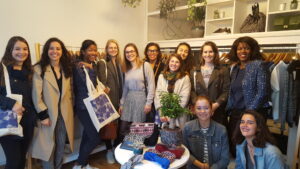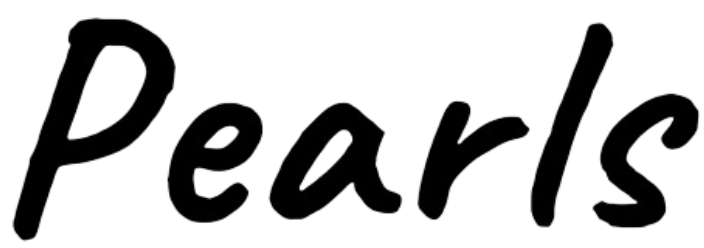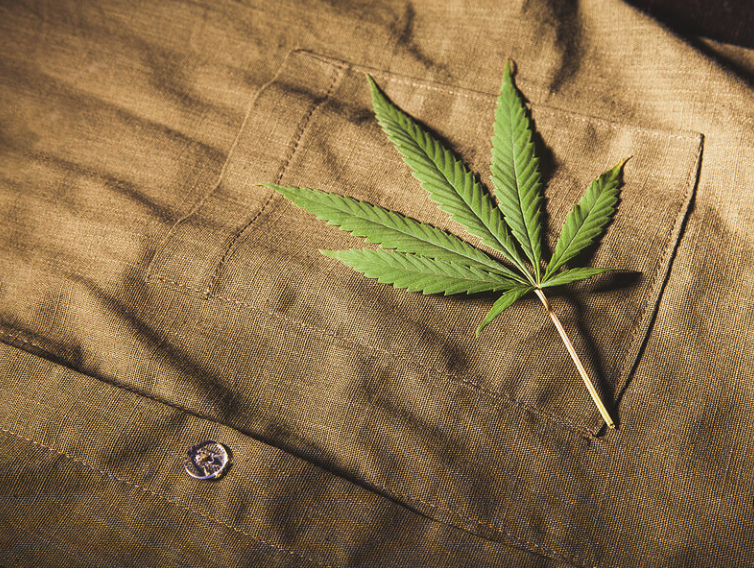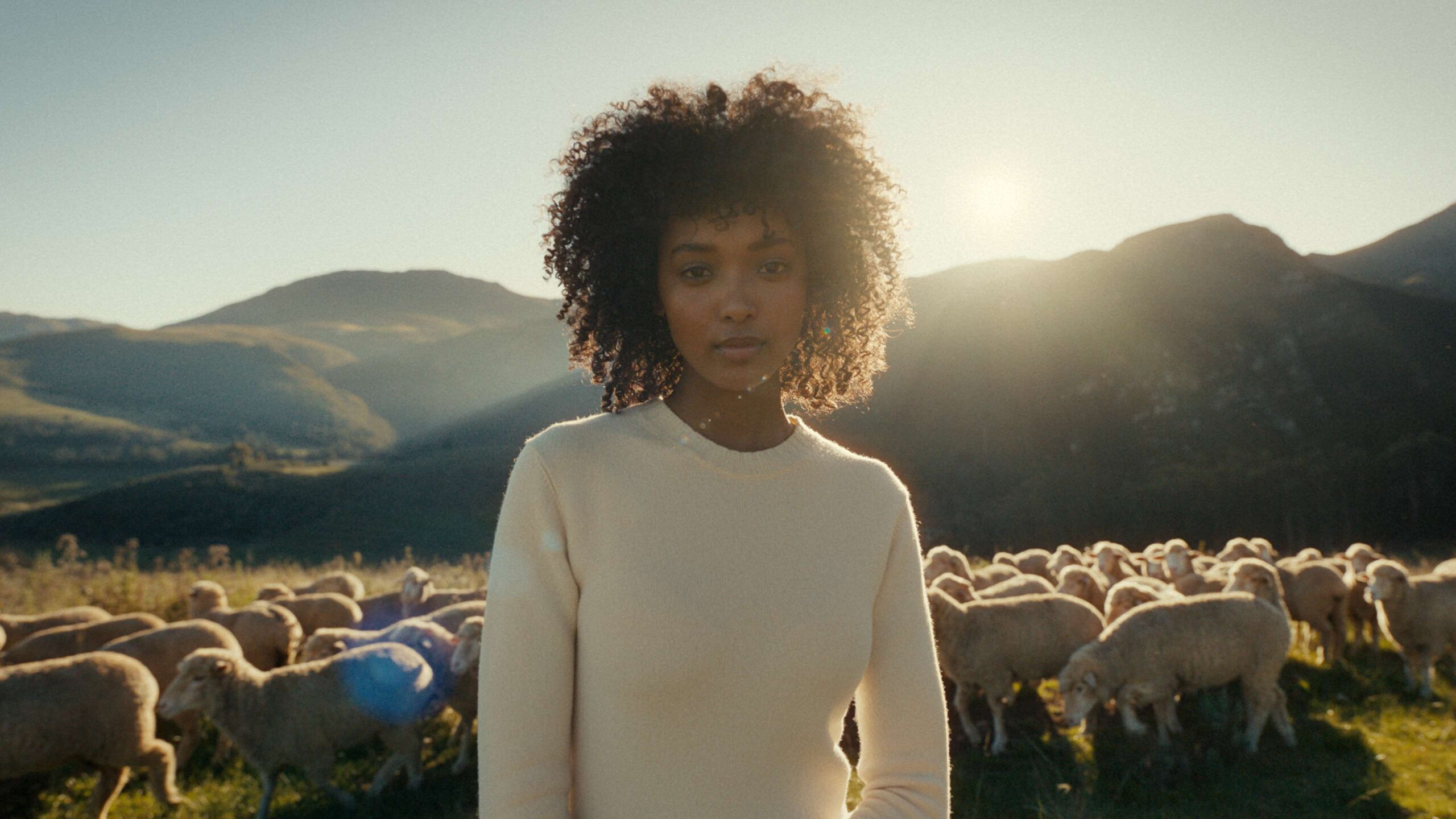The French entity SloWeAre aims to redefine industry standards in fashion by offering committed brands an ethical and transparent label. This innovative initiative, launched over ten years ago by Éloïse Moigno and her partner Thomas Ebélé, seeks to promote eco-responsible fashion.
Éloïse, dedicated to sustainability and environmental protection, has been influenced by her family background and her experiences in the fashion industry. During this interview, she shares her deep motivations for getting involved in this process, as well as the challenges she has faced and the solutions she wishes to promote to encourage a more planet- and people-friendly fashion.

Eloïse Moigno and Thomas Ebélé, the co-Founders of SloWeAre.
Hello, Éloïse! What have been your main motivations for committing to more responsible fashion?
The entrepreneurial adventure began to germinate between 2012 and 2014. I launched SloWeAre in 2016 after creating Eco Fashion Paris. At that time, I was working in the food industry and felt the need to act due to the lack of information about the traceability of our clothing. My goal was to experiment and understand what was happening in this industry. My experience in the media also allowed me to use research mechanisms to explore the challenges of the sector. My initial concern was to know where we stood: why was there no information about traceability and why were consumers not more interested? I wanted to provide tools for action and open pathways to solutions that made sense but lacked visibility.
“Nowadays, committed fashion brands still lack recognition. The issue of visibility is fundamental, and how to make committed brands emerge remains a significant challenge.”
I come from a family of organic farmers. I have always been inspired by environmental preservation, but I also have a passion for craftsmanship and beautiful things in general. My visits to lace workshops in Puy-en-Velay during my childhood and my experience in the fast fashion chain Etam while I was a student opened my eyes to the dysfunctions of the fashion industry. I then entered a business school where I specialized in strategic and ethical marketing. At that time, few ethical brands were known, which led me to orient myself toward the food industry while continuing to develop my pre-business project. For me, fashion is not about trends, but about style, sociology, manufacturing methods, and know-how.

The EcoFashion Tour, 2018.
Can you explain what the SloWeAre label is and what criteria are necessary to obtain this certification?
I launched SloWeAre with Thomas, who helped me solidify this idea with a set of specifications. My previous research allowed me to understand the concerns of creators by meeting with fast fashion brands to analyze the shortcomings in the sector. I want to clarify that today, no ethical fashion brand is perfect, as all have areas for improvement.
The pre-eligibility criteria to obtain the SloWeAre label are varied and encompass several essential aspects of sustainability and ethics in the fashion industry. First, brands must commit to using predominantly eco-responsible materials, thereby ensuring a reduced environmental footprint. Additionally, they must respect ethical labor conditions for all stakeholders involved in the production process. Reasoned production is also paramount, seeking to limit clothing waste and promote a responsible approach to consumption. Simultaneously, the label values the creation of value for employment and the sustainability of companies while integrating principles of social inclusion and gender representation. The importance of cultural diversity is also highlighted, with a strong commitment against cultural appropriation and a desire to preserve traditional knowledge. Although we mainly work with French brands, we are also considering integrating foreign brands that meet our criteria.
Currently, how many fashion brands are labeled as SloWeAre?
To date, around thirty brands are labeled. Each year, they update their labeling and are subject to an audit. Our role is to guarantee consumers that these labeled brands—unlike transitional fashion brands—place eco-responsibility at the heart of their actions. Their approach is ethical, transparent, and consistent. These brands are not perfect, but they have convictions that can advance things, seeking to align their value chain.
We also consider labeling structures that revalue clothing or offer repair services. Currently, we are working to establish a common denominator for these different economic models.

The SloWeAre collective / Photo : Thomas Ebélé.
What is the price of the SloWeAre label?
We operate in a market with low margins, especially for brands transitioning to an eco-responsible model. We have established a fee schedule tailored to different company profiles so that price is not a barrier. The goal is for labeling to help brands structure and value their commitments while supporting them in their approach. This label also allows them to assess their actions and explore strategic axes for further advancement.
How would you describe your journey from the creation of the label in 2016 to today? What lessons have you learned?
Since the creation of SloWeAre, we have continuously tried to convince and persuade actors in the sector. The question of price remains a sensitive topic, especially in the face of competition from fast fashion and ultra-fast fashion, which distort the real value of our clothing. You regularly participate in conferences with the general public. What is the impact of your intervention on the new generation in terms of ethical and sustainable fashion? During our workshops, we seek to leave participants with an optimistic vision and a desire for change. These events allow us to gauge trends and understand the public’s concerns regarding the transition in fashion. We also help companies that hesitate to take the step by showing them that change is not insurmountable.

The Fashion Green Days, 2018.
What advice would you give to young entrepreneurs who want to launch their own sustainable fashion brand?
For young entrepreneurs wishing to launch their own sustainable fashion brand, it is essential to start by establishing direct contact with suppliers to ensure the transparency of their value chain even before the conception of a product. This approach not only ensures that the materials used are ethical but also builds a relationship of trust with production partners. Simultaneously, brands should create a strong identity and a unique brand that reflects their values of sustainability and ethics. Finally, developing a solid business plan that integrates both the creative aspects of design and financial aspects will provide them with sustainability in the market.

The launching of the book “La face cachée des étiquettes”, 2023.
Two years ago, you published the book “La face cachée des étiquettes” (“The Hidden Face of Labels”, not available yet in English). What strategies would you highlight to encourage consumers to demand more transparency from brands?
Beyond simply reading labels, it is essential to prepare one’s shopping journey to adopt conscious consumption. This includes seeking ethical brands and valuing what is already owned in the wardrobe. It is also about prioritizing quality basics, made from natural and ethical materials that can be accessorized with second-hand items or pieces from young creators, for example.
According to a study by the shopping app Joko, Shein has become the fashion brand where the French have spent the most in 2024. How do you explain this contradiction between an increasingly thoughtful consumption and the rise in purchases in ultra-fast fashion?
Online shopping has become extremely accessible, favoring compulsive consumption and thus overconsumption… We are influenced by a society that pushes us to buy without really needing it. It is essential to raise awareness among consumers about the manufacturing conditions of products so that they return value to what they purchase.
“Ethical fashion must be highlighted to showcase the positive changes it can generate for the planet and people.”
At SloWeAre, we have developed an educational tool, “Changeons de mode,” that helps companies understand the impact of their manufacturing.
What are your projects for 2025, and how do you see the evolution of SloWeAre in the coming years?
We wish to share our reflections more through training and workshops. We plan to work on responsible communication, value chains, and other projects that will take shape throughout 2025.
Words : Eloïse Moigno / Anne-Sophie Castro
Photos : SloWeAre
More information on ethical and sustainable fashion in our magazine




